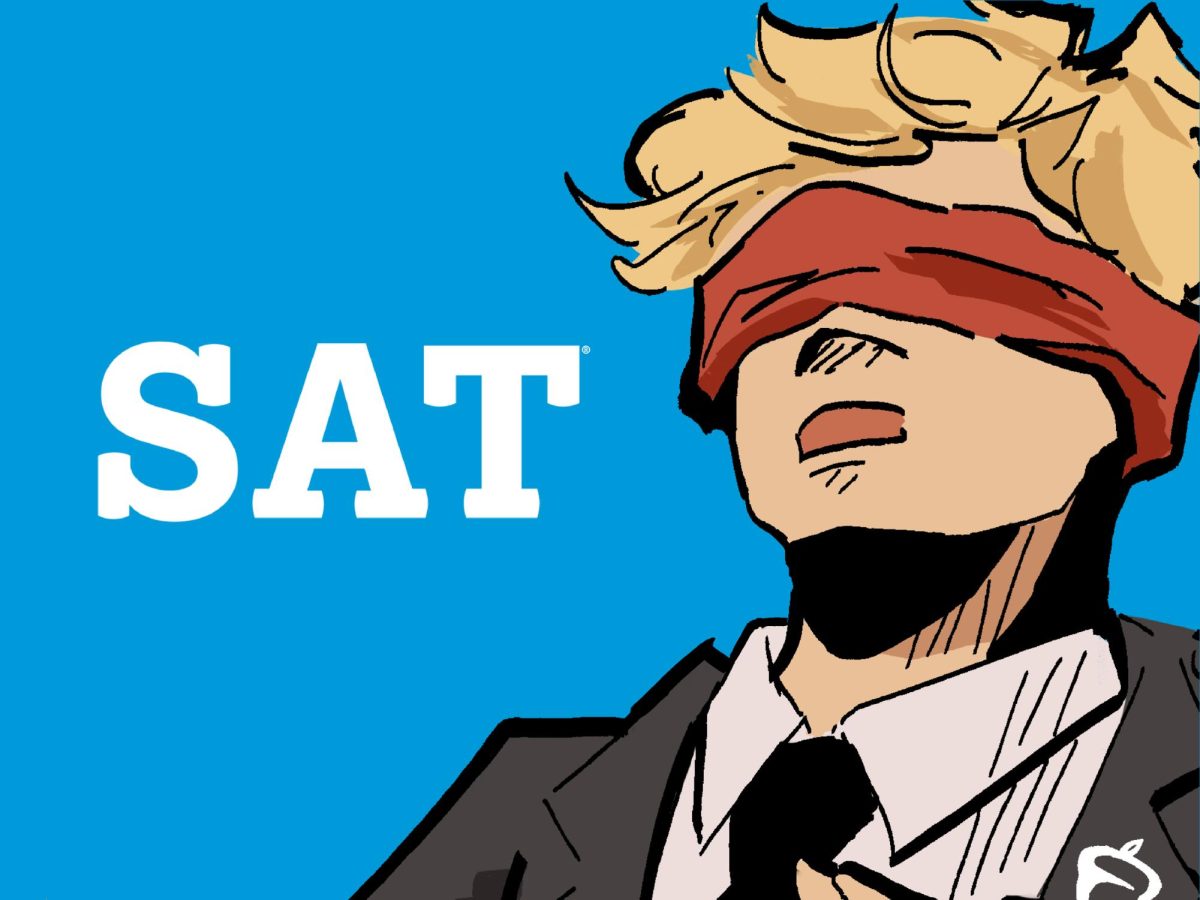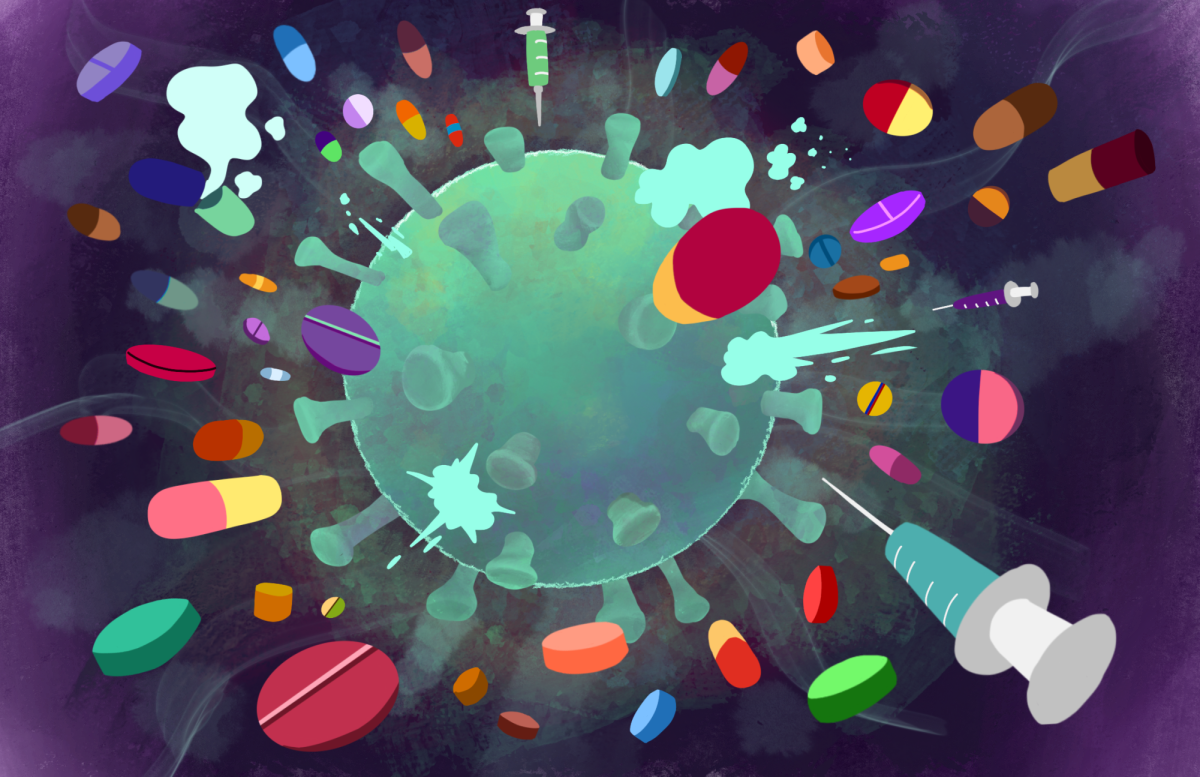If you have any questions, comments or concerns about the content of this article, we strongly encourage you to contact us at [email protected]. If you wish to report any cases of sexual misconduct, please talk to a trusted adult.
October’s Breast Cancer Awareness Month features a pink ribbon to remind Americans that the disease is the second leading cause of cancer death in women.
Also in October, AIDS Awareness Month utilizes a red ribbon to draw attention to the more than 30 million people who have died from AIDS-related illnesses since the start of the epidemic in 1981.
But not much is known about a teal stripe used to shed light on questionable conduct that has come to the forefront of today’s front-page news because of the #MeToo movement nearly four years ago.
“Unfortunately, it’s not talked about enough, not only in terms of the fact that sexual harassment and assault are prevalent, but that it often impacts people directly,” said Laura Palumbo, communications director for the National Sexual Violence Resource Center [NSVRC], which is recognizing the 20th anniversary of national Sexual Assault Awareness Month in April. “Sexual Assault Awareness Month is focused on raising awareness of all forms of sexual abuse and misconduct, so [it includes] sexual harassment, sexual assault as well as things like non-consensual image sharing, which is sometimes called revenge porn, but it’s all sort of connected to the same root issue.”
According to a 2018 Chapman University study, 69% of Orange County teenagers or almost two-thirds experienced at least one type of abuse in dating relationships.
“Sexual harassment and assault or even dating violence … [are] a part of the life experience of high school students,” Palumbo said. “It’s something that, whether it has impacted them directly or to someone they know, is a real issue.”
Originally created in 2001 by the NSVRC to educate and raise awareness for sexual harassment and assault, the campaign will occur virtually like last year because of the COVID-19 pandemic.
“We coordinate the national campaign, but we partner with rape crisis centers in communities all across the United States,” she said. “We have a number of campuses that participate; there will be a number of even high school and middle schools, and also local LGBTQ centers as well as even libraries.”
The center will offer opportunities to shed light on the issue through its Instagram handle, @nsvrc.
“We’ll have an Instagram contest called, ‘The 30 Days of SAAM,’ which has daily prompts to use your Instagram platform to highlight SAAM and to also raise awareness,” Palumbo said. “We’ll have specific actions we invite people to take during April, as well as events people can participate in that are all virtual.”
WHAT SEXUAL ASSAULT ENCOMPASSES
Upon the mention of the words, “sexual assault,” many assume that they’re referring to physical violence. But the expression covers a larger scope of misconduct.
Because attempted rape and rape involve attempted or unwanted physical contact, the act falls under sexual assault. Sexual harassment, though, may include sexual assault.
“Oftentimes the word sexual harassment specifically refer to things like verbal harassment as well as harassment based on someone’s gender identity or sexual orientation,” she said. “But sexual harassment can certainly include unwanted touch and can escalate to a physical assault in a sexual assault.”
To help teachers and parents in the school setting, the Center provides resources on its website since sexual misconduct still exists in high school, Palumbo said.
“It’s important to talk about sexual harassment in the high school setting specifically because it is actually something that is very normalized, [like] unwanted touch or unwanted comments,” she said. “That actually is not acceptable and is inappropriate and is part of what can be contributing to the conditions that allow [sexual harassment and assault] to occur.”
NATIONAL MOVEMENT STILL CATCHING ON IN FULLERTON
Freshman Arum Han had not heard of the awareness month before, but she recognized the importance of addressing sexual misconduct in high school.
“I think this is such an amazing opportunity for us to learn about these sensitive topics, especially for high school students because it is a rising issue in society, and raising awareness helps us understand and be more cautious so that things like this can be prevented.”
Junior Aayush Sachdev also knew about the prevalence of sexual assault even though he had not learned about the April awareness month.
“I think that it is good to have a month dedicated to sexual assault awareness,” Sachdev said. “Sexual assault has become a bigger issue recently, and it is good to make more people aware of the [issue and] put a stop to it.”
Sophomore Hao Tam Tran said she recalls coming across Sexual Assault Awareness Month before.
“I think that it’s pretty cool since it’s an important topic that people need to be more aware and considerate of for the victims, though I wouldn’t really consider myself qualified to [talk] about this kind of topic since I personally have no experience with it,” Tran said. I do think that for the people who sadly have experienced it, it’s a nice way to show that we care about them and want to help.”
WHY IT’S IMPORTANT TO KEEP TRACK OF SEXUAL ASSAULT CASES
While California does not require public high schools to keep track of the number of sexual assault cases they get per year, Palumbo said with continued education and awareness of this issue, she hopes that will some day change.
“We know that sexual harassment and assault are underreported,” she said. “And we know that the most vulnerable survivors are often the ones with the most barriers to coming forward.
“But if we can really shed light on what we do know and what information that is available to us, it can actually be quite helpful in how a school or another system or institution gives solutions to address this problem.”
Palumbo suggested schools promote effective communication and transparency so students know where to look to report an incident of sexual misconduct.
“For school districts when they’re responding, oftentimes they’re very concerned with their institution’s liability, as well as the confidentiality of all those involved,” she said. “Those are very important considerations, but it’s also an important consideration to make sure that you’re doing a lot of information sharing to ensure that people do understand what policies are in place, understand how to make a report and how reports are handled.”
Specifically, Palumbo said schools should present information to provide a trustworthy source of help for students.
“If you’re a school that wants to create a culture where students feel safe and confident in reporting, then that means there should be some level of information that’s available to them about how many reports have been made, how reports are handled and what that process looks like,” she said. “In the absence of that information, it takes a lot of trust for students to make a report and come forward.”
SO WHERE’S THE DATA COMING FROM?
Despite this lack of information from public schools, Palumbo said organizations like the Center for Disease Control gather data through surveys and crime victims.
“The data does reflect that the people who are most often experiencing sexual assaults are women and that sexual assault happens often when they’re under the age of 25,” she said. “So we know that it is very prevalent for women, specifically women under the age of 25, but we also know that sexual assault does happen to men.”
But this does not undermine male sexual assault survivors’ experiences. Rather, such findings highlight the stereotypes behind male victims.
“All sexual assault survivors face, unfortunately, barriers and stigma, but for men specifically there’s a lot that silences them from coming forward,” Palumbo said. “A stereotype [is] that men don’t experience sexual assault, and if men do experience it, then they must be men who are weaker or more effeminate, maybe gay men, and so that perception of men who are strong and traditionally masculine would be able to protect themselves from assault is also a very problematic stereotype.
“For men, like all victims of assault, what happened to them was not their fault.”
She also highlighted sexual assault and harassment based on sexual orientation and disability.
“Bi and lesbian women and transgender [people] experience sexual assaults at higher rates as well as both men and women with disabilities,” the communications director said.
HELP, I NEED SOMEBODY
Students who have experienced sexual harassment or assault have multiple avenues to get help, receive counseling or report the incident.
Palumbo encouraged people to reach out to any trusted adult, as well as their local rape crisis center. For the Fullerton area, the local center is Waymakers OC located in Santa Ana, Calif., with resources available online and victim assistance centers on the phone at 714-773-4575 for Fullerton.
The National Rape, Abuse and Incest hotline is also a viable option at 1-800-656-4673 to get help in a private and safe manner.
“For students who have experienced sexual assault or harassment, they have a confidential resource in their local rape crisis center,” she said. “So you can reach out to your local rape crisis center, then National Rape, Abuse and Incest hotline and that way we’ll be able to [meet] with an advocate who is able to speak with you confidentially about your experience.”
Although Palumbo acknowledged the positive aspects of social media in connecting people virtually even during the pandemic, she recommended that people looking to share their experiences online remember the legal aspects of the situation.
“It’s important to recognize that there are important considerations in terms of your confidentiality, as well as if you ever do decide to make a formal report,” she said. “What you have shared online and on social public platforms is something that can be a legal investigation.”
Nevertheless, Palumbo warned people of netizens who might doubt their experiences.
“Of course a concern is that if you’re [putting] your story online, there are a lot of people who, through social media, make victim blaming comments or question a survivor, question the validity of their story or question the actions that they took.
“So because of that as well, we encourage the survivor to do what feels like the best way for them, but we would want them to know the ramifications of that action.”

![This April will mark the 20th anniversary of national Sexual Assault Awareness Month originally created by the National Sexual Violence Resource Center [NSVRC]. This year, the Center will offer resources and activities, including images like this one, on their social media platforms.](https://shhsaccolade.com/wp-content/uploads/2021/02/SAAM_Mainfb1.png)








